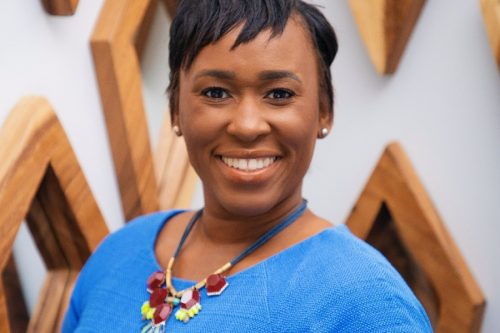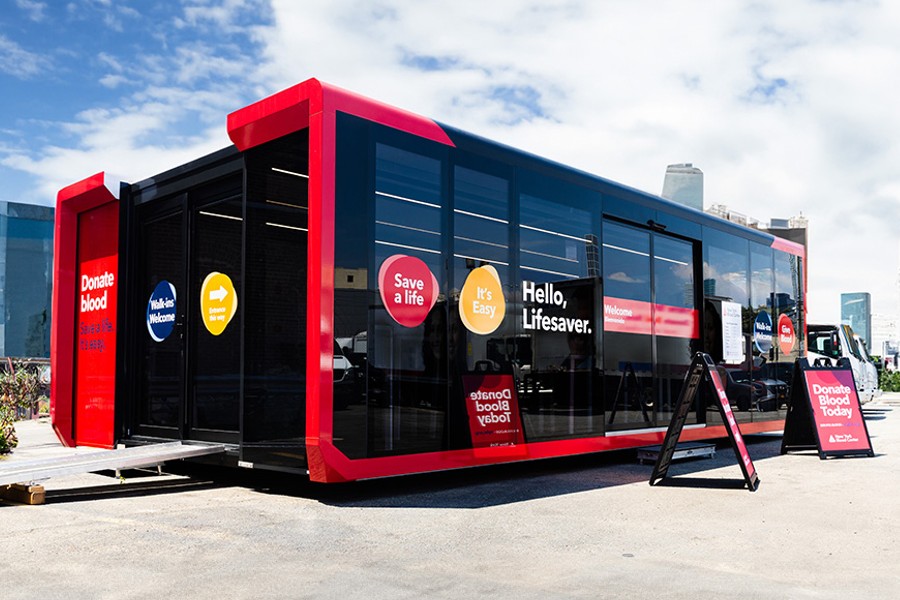
A coalition of gender-based violence advocates and organizations today applauded the New York City Council as it voted to adopt a resolution that will help the most marginalized survivors gain better access to safe temporary housing.
Resolution 0165-2022, which was sponsored by NYC Council Member Farah Louis (District 45), calls upon the New York State Legislature to pass A.2583/S.15, which would help adult survivors of violence without children, such as LGBTQ+ survivors, older adult survivors, survivors of trafficking and single survivors with pets, obtain access to domestic violence shelter. These survivors are less likely to have minor children when they flee violence.
“While anyone can be a victim of domestic violence, domestic violence shelters were overwhelmingly built to accommodate one type of survivor – a woman fleeing her abusive husband with her children. Our understanding of trauma and notions of family have evolved since the first domestic violence shelter was built in New York State in 1976, and the policies that govern who should be able to access safe shelter must change to reflect that evolution. I am grateful to Council Member Louis for amplifying the inequity and the plight of marginalized survivors. We must do everything we can to get people who are experiencing violence into the safety of our purpose-built shelters. Bill A.2583/S.15 will help us get there,” said Nathaniel Fields, CEO, Urban Resource Institute.
“This resolution is a call for reform in our reimbursement policies, to ensure they align with the realities faced by domestic violence shelters and the survivors they serve,” said Councilmember Farah Louis. “We must adjust our funding strategies to accommodate not just families but also single adults who are victims of domestic violence, who often face barriers to shelter access. Our goal should be to provide safe, appropriate, and accessible shelter for all survivors, regardless of their family size. It is imperative that our state partners review and revise the current reimbursement model to prevent any further reduction in service capacity, and to make certain that every person seeking refuge from domestic violence can find a sanctuary that is equipped to aid in their recovery and safety.”
Survivors without children have always needed housing. Historically, domestic violence shelters were built to accommodate families with children, and most rooms in the system are configured for double occupancy, meaning one adult and one child. Providers of temporary housing for domestic violence survivors are reimbursed by the State for providing shelter services on a per-person-per-night or “head in a bed” basis. Providers essentially face a financial penalty if they decide to place an adult survivor without children in a room designed for families: they stand to lose $21,000 per double bed used for a single. Shelter-providing organizations that see the need to house singles but are often not able to do so due to already tight budgets that would not allow for this type of significant financial impact.
The need for space for adult survivors without children has never been higher. In 2021, 48% of the calls came from single adults in need of shelter. Of those, only 31% were connected with shelter, compared to 76% of clients with one child and 78% of clients with two children. 2022 was worse: while 49% of all requests for shelter came from single adults, they accounted for less than a quarter (or 24%) of all shelter placements. There are only around 111 allocated single space shelter beds out of the 23,000 beds available in the DV shelter system.
“Safe Horizon, the nation’s largest nonprofit victim services organization, is grateful to Council Member Farah Louis and her colleagues for passing this resolution and drawing much-needed attention to the obstacles facing single adult survivors seeking emergency shelter. New York’s emergency domestic violence shelter system is mostly configured for families, not individuals. As the organization that operates New York City’s 24-hour domestic violence hotline, which serves as survivors’ gateway to shelter, we see every day how nearly impossible it is for survivors to access the very limited number of shelter beds set aside for singles. By removing the financial barrier for domestic violence shelter providers to downsize rooms to accommodate single adults, A. 2583/S. 15 (Hevesi/Gounardes) would give greater access to life-saving emergency shelter to single adult survivors of domestic violence, sexual abuse, and trafficking. This is a commonsense solution to a problem that continues to worsen,” said Jimmy Meagher, Policy Director at Safe Horizon.
“The current system of reimbursing DV providers in a ‘heads in beds’ approach leads to significant undue burdens for single survivors seeking shelter, particularly those in historically excluded communities including LGBTQIA+ survivors, older survivors and survivors with pets. If a DV program takes the survivor-centered approach and houses a single individual in a room alone, the program stands to lose nearly $21,000 for another unused bed in the room, assuming a 180-day stay. This loss would be catastrophic for even the most financially sound DV program,” said Joan Gerhardt, Director of Public Policy and Advocacy at the New York State Coalition Against Domestic Violence.”As the nation’s largest organization supporting survivors of violence who are lesbian, gay, bisexual, transgender and/or queer, or live with HIV, AVP has long advocated to make the domestic violence shelter system more accessible to LGBTQ+ survivors who often face barriers while seeking transitional housing. The lack of accommodation forces many of our survivors and other survivors without children to stay in dangerous settings or on the street, or pushes them into the DHS system, which is not designed to support their healing. Transitional housing providers should not face near-certain financial ruin for housing survivors without children. AVP commends Council Member Louis for taking on this issue and standing with marginalized survivors of violence to ensure that everyone, regardless of gender identity or family composition has access to safe, stable transitional housing that is designed to meet their distinct needs,” said Beverly Tillery, Executive Director of the Anti-Violence Project.
- Wells Fargo Shares Economic Impact From Open For Business Fund
- Harlem Rallies For Kamala Harris: A Historic Gathering Of Black Women Leaders
- In Conversation With Ketanji Brown Jackson At The Apollo Theater In Harlem
- Chancellor David C. Banks Appoints Simone Hawkins As Deputy Chancellor For Early Education
- Vibrant Summer Styles Are Making A Comeback 2024
Become a Harlem Insider!
By submitting this form, you are consenting to receive marketing emails from: Harlem World Magazine, 2521 1/2 west 42nd street, Los Angeles, CA, 90008, https://www.harlemworldmagazine.com. You can revoke your consent to receive emails at any time by using the SafeUnsubscribe® link, found at the bottom of every email. Emails are serviced by Constant Contact









